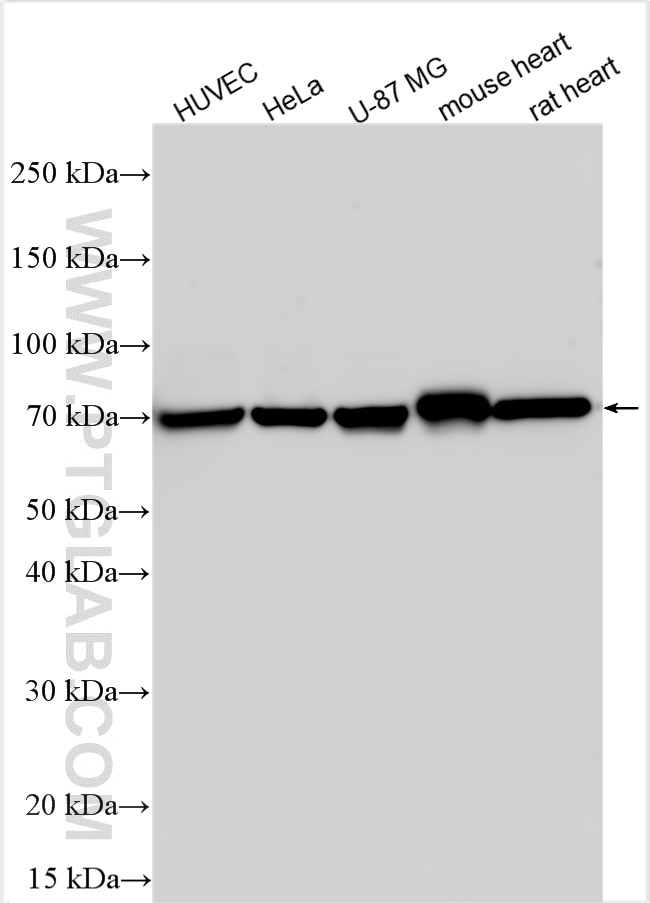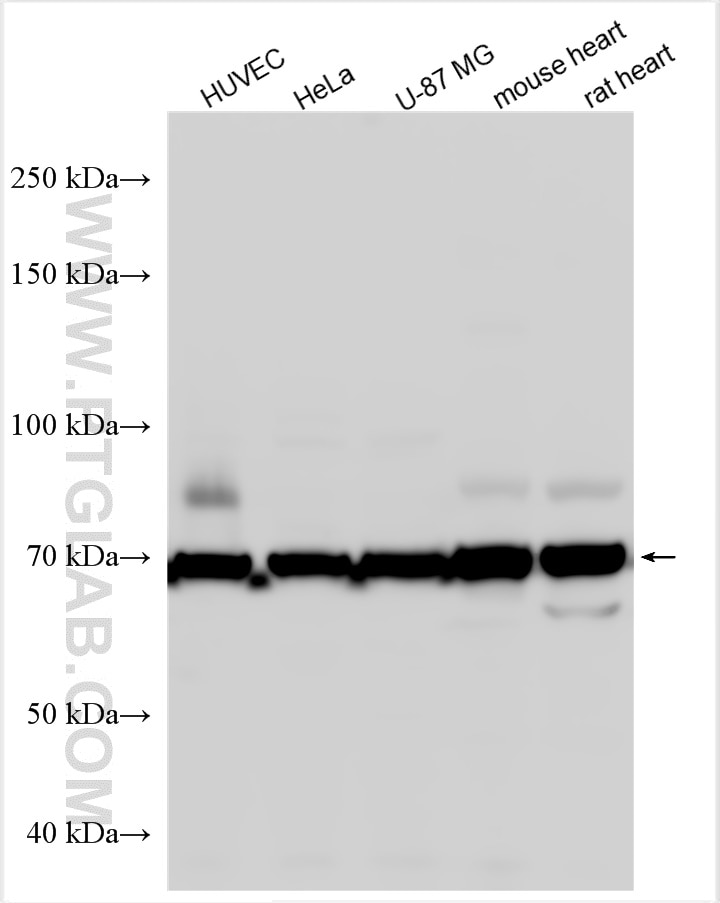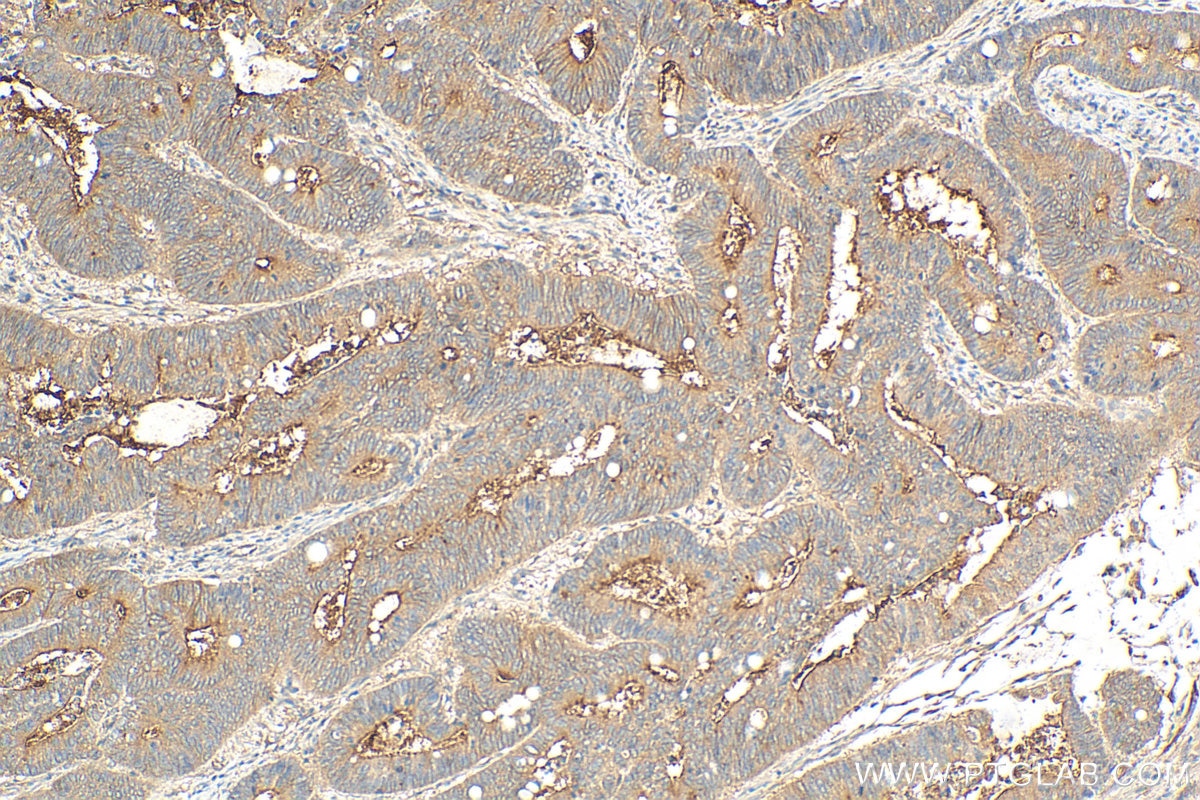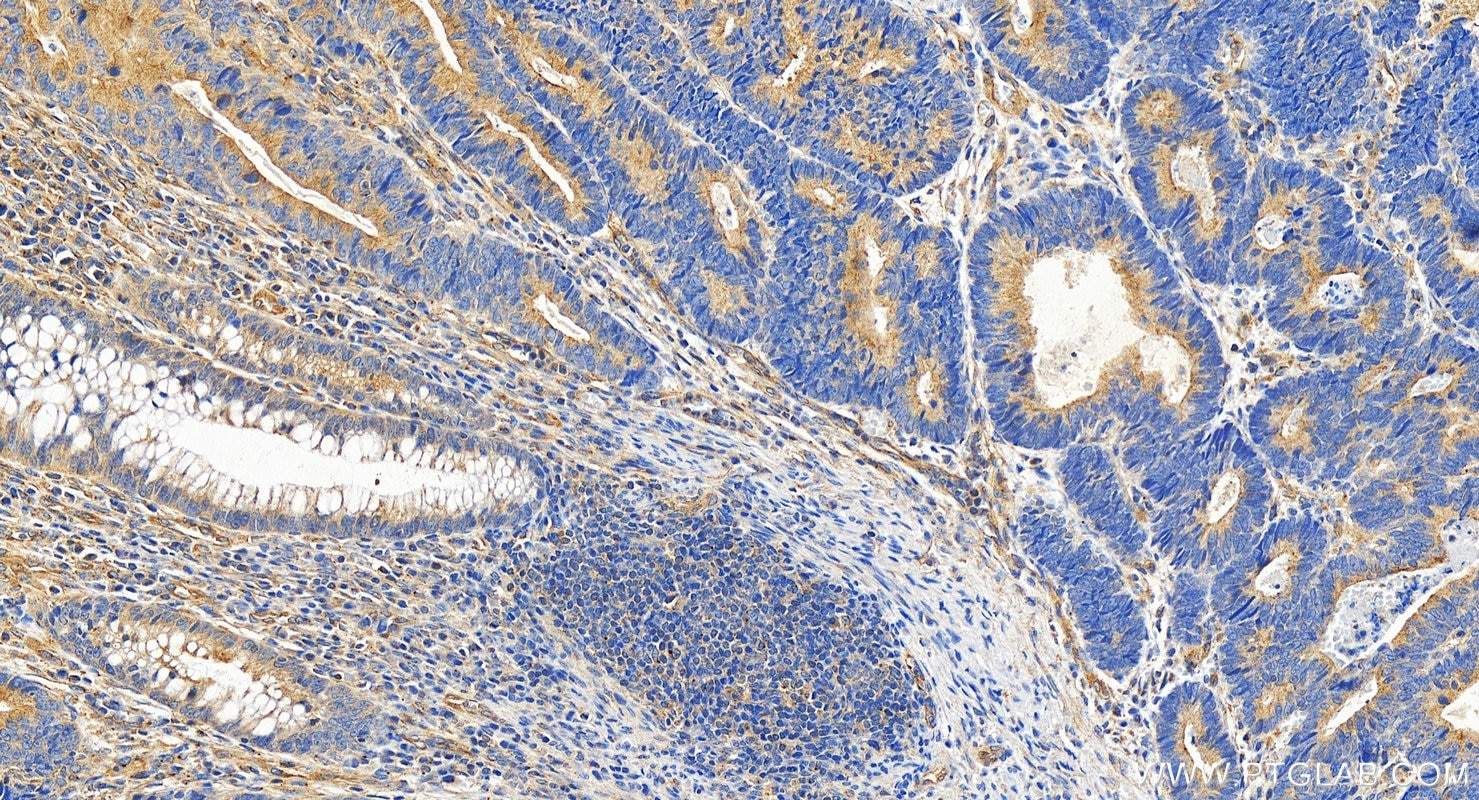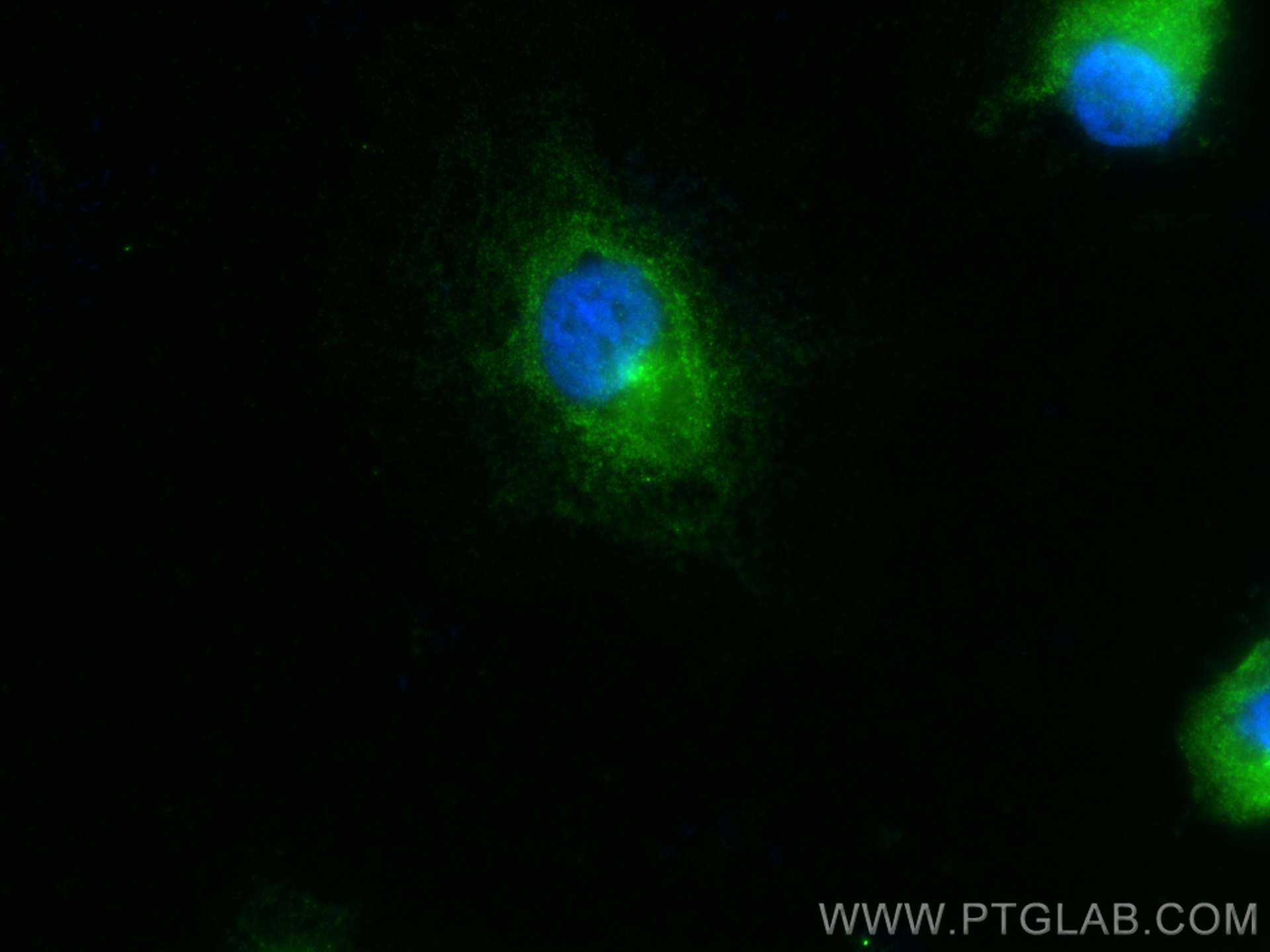Anticorps Polyclonal de lapin anti-Angiopoietin 1
Angiopoietin 1 Polyclonal Antibody for WB, IHC, IF/ICC, ELISA
Hôte / Isotype
Lapin / IgG
Réactivité testée
Humain, rat, souris
Applications
WB, IHC, IF/ICC, ELISA
Conjugaison
Non conjugué
N° de cat : 27093-1-AP
Synonymes
Galerie de données de validation
Applications testées
| Résultats positifs en WB | cellules HUVEC, cellules HeLa, cellules MG U-87, tissu cardiaque de rat, tissu cardiaque de souris |
| Résultats positifs en IHC | tissu de cancer du côlon humain, il est suggéré de démasquer l'antigène avec un tampon de TE buffer pH 9.0; (*) À défaut, 'le démasquage de l'antigène peut être 'effectué avec un tampon citrate pH 6,0. |
| Résultats positifs en IF/ICC | cellules HUVEC, |
Dilution recommandée
| Application | Dilution |
|---|---|
| Western Blot (WB) | WB : 1:1000-1:8000 |
| Immunohistochimie (IHC) | IHC : 1:500-1:2000 |
| Immunofluorescence (IF)/ICC | IF/ICC : 1:200-1:800 |
| It is recommended that this reagent should be titrated in each testing system to obtain optimal results. | |
| Sample-dependent, check data in validation data gallery | |
Applications publiées
| KD/KO | See 1 publications below |
| WB | See 5 publications below |
| IF | See 1 publications below |
Informations sur le produit
27093-1-AP cible Angiopoietin 1 dans les applications de WB, IHC, IF/ICC, ELISA et montre une réactivité avec des échantillons Humain, rat, souris
| Réactivité | Humain, rat, souris |
| Réactivité citée | rat, Humain, souris |
| Hôte / Isotype | Lapin / IgG |
| Clonalité | Polyclonal |
| Type | Anticorps |
| Immunogène | Angiopoietin 1 Protéine recombinante Ag25786 |
| Nom complet | angiopoietin 1 |
| Masse moléculaire calculée | 498 aa, 58 kDa |
| Poids moléculaire observé | 70 kDa |
| Numéro d’acquisition GenBank | BC152411 |
| Symbole du gène | Angiopoietin 1 |
| Identification du gène (NCBI) | 284 |
| Conjugaison | Non conjugué |
| Forme | Liquide |
| Méthode de purification | Purification par affinité contre l'antigène |
| Tampon de stockage | PBS with 0.02% sodium azide and 50% glycerol |
| Conditions de stockage | Stocker à -20°C. Stable pendant un an après l'expédition. L'aliquotage n'est pas nécessaire pour le stockage à -20oC Les 20ul contiennent 0,1% de BSA. |
Informations générales
Angiopoietin 1 is a 70-kDa secreted glycoprotein generated from vascular mural cells, pericytes, and certain other cells. Angiopoietin 1 participates in vascular differentiation through angiogenesis, which is the process of the growth and remodelling of existing vessels. Angiopoietin 1 is also involved in the maintenance and turnover of blood vessels in mature animals. Angiopoietin 1 binds to and activates the TEK/TIE2 receptor by inducing its dimerization and tyrosine phosphorylation, playing an important role in the regulation of angiogenesis. Overexpression of Angiopoietin 1 has been proven to occur in malignant glioblastoma, neuroblastoma, non-small cell lung cancer, and other tumors.
Protocole
| Product Specific Protocols | |
|---|---|
| WB protocol for Angiopoietin 1 antibody 27093-1-AP | Download protocol |
| IHC protocol for Angiopoietin 1 antibody 27093-1-AP | Download protocol |
| IF protocol for Angiopoietin 1 antibody 27093-1-AP | Download protocol |
| Standard Protocols | |
|---|---|
| Click here to view our Standard Protocols |
Publications
| Species | Application | Title |
|---|---|---|
J Ethnopharmacol Lycium barbarum polysaccharides attenuates high glucose-induced diabetic retinal angiogenesis by rescuing the expression of miR-15a-5p in RF/6A cells | ||
Aging Cell Phosphodiesterase inhibitor ameliorates senescent changes of renal interstitial pericytes in aging kidney | ||
Basic Res Cardiol Investigating the cause of cardiovascular dysfunction in chronic kidney disease: capillary rarefaction and inflammation may contribute to detrimental cardiovascular outcomes | ||
Mater Today Bio Doxorubicin-loaded PEGylated liposome modified with ANGPT2-specific peptide for integrative glioma-targeted imaging and therapy
| ||
Adv Healthc Mater Targeted Anti-Inflammatory Nanozymes with Pro-Angiogenic Activity for Myocardial Infarction Therapy |
